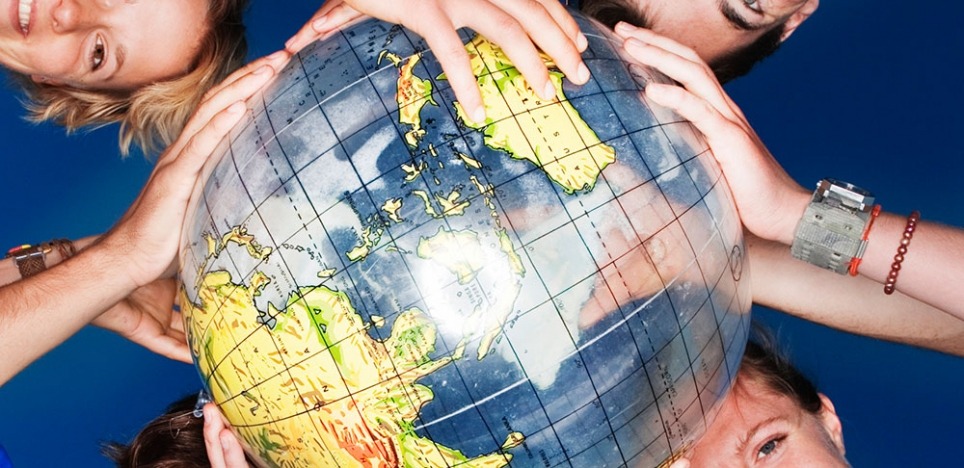We published this feature first in 2008 after being touched by the film Slumdog Millionaire. Mary Ann remembered it when she was attending the Parliament of the World's Religions in Salt Lake City October 15 - 19. It seems like a good time to update and repost it.
Every year when Mary Ann was growing up, her mother learned about a different country. In the fall a set of little books would arrive from the women’s society of the church covering the history and culture of the country and profiling service programs there sponsored by the national denomination or an affiliated relief organization.
“This is fascinating,” Mother would say, as she read aloud about a ritual in the faraway land or the kinds of problems seen at a medical clinic — always of interest to Mary Ann’s father, a doctor. When the family moved to Pakistan for three years so he could teach in a medical school, all that carefully cultivated curiosity really bloomed. Now mission projects were not just descriptions on the page — they were people we sat next to in church or places we visited on weekends. When we heard that the children in a refugee camp didn’t have any paper, Mary Ann and her sister donated the index cards they had used to write their high school term papers. Later they saw elementary school kids using the back of those cards for their drawings.
Frederic’s interest in foreign lands developed from reading books and going to movies. Adventure stories set in distant places captured his imagination. As a boy, he even thought of becoming a missionary when he saw the movie Keys of the Kingdom about a priest in China.
Movies about cross-cultural experiences are still a favorite genre. We both enjoy stories about journeys that force the characters to face the unknown, learn from their encounters, and return home with new understandings of themselves and the world. We also have grown to love slice-of-life foreign-made movies, often filmed on location with nonactors and presented with subtitles, that show us how other peoples live and deal with everyday situations. Invariably it’s not how different they are that touches us; it’s how similar their hopes and dreams are to our own.
Alan Jones, dean of Grace Episcopal Cathedral in San Francisco, defines spirituality as the “art of making connections.” Our spirituality was nurtured when we were encouraged as children to see ourselves as part of the larger world. Here are some of the practices that we use now to reinforce our sense of being connected to the worldwide community.
• Walk slowly through your home and notice how many countries your things came from. Check the bottom of your dishes and figurines. Read the labels on your clothes. Don’t forget to look in the refrigerator and pantry. This is a fun exercise to do with children. Say a blessing for the people who created or grew the item you have in your house.
• At a meal with friends — or perhaps as the ice-breaker for a meeting in your congregation — talk about your international roots. Where did you or your family come from? What do you treasure about that connection?
• Read a newspaper from a different community or country. Thousands of papers can be accessed through the Internet site www.onlinenewspapers.com. Follow a news story from the perspective of several locales. Or read the features pages to see what’s considered entertaining there. Here your intention is to celebrate commonality of experiences and the unity of humankind. It is also a good way to break down barriers of suspicion and fear of strangers.
We still use films to reinforce our feelings of connections with others. Here are some of our favorites for this purpose.
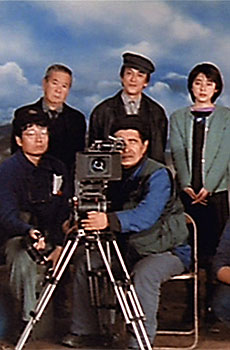 After Life, a Japanese film, takes place in a facility where recently deceased people are asked to choose one memory to carry into eternity. As they review their lives, you can’t help but do the same, noticing how much you and they have in common in your activities and aspirations.
After Life, a Japanese film, takes place in a facility where recently deceased people are asked to choose one memory to carry into eternity. As they review their lives, you can’t help but do the same, noticing how much you and they have in common in your activities and aspirations.
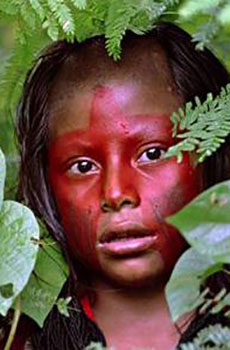 Baraka is an astonishing documentary that uses breathtaking cinematography and mesmerizing music — but no narration — to present a global family album. Filmed on six continents in 24 countries, it conveys the vastness and variety of nature, city life, sacred sites, rituals, and the shared distress of Earth and humankind. The central message: It’s a small world, and we’re all connected.
Baraka is an astonishing documentary that uses breathtaking cinematography and mesmerizing music — but no narration — to present a global family album. Filmed on six continents in 24 countries, it conveys the vastness and variety of nature, city life, sacred sites, rituals, and the shared distress of Earth and humankind. The central message: It’s a small world, and we’re all connected.
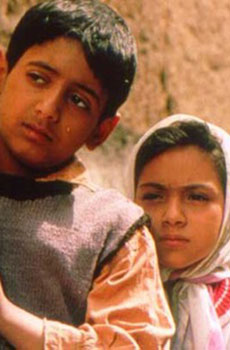 Children of Heaven, is a masterpiece about familial love from acclaimed Iranian director Majid Majidi. When a brother loses his little sister's newly repaired shoes, they have only one pair of sneakers between them to wear to school. Share they must, and share they do, on many levels. Watching them, we are reminded of children we know and the challenges and joys of childhood.
Children of Heaven, is a masterpiece about familial love from acclaimed Iranian director Majid Majidi. When a brother loses his little sister's newly repaired shoes, they have only one pair of sneakers between them to wear to school. Share they must, and share they do, on many levels. Watching them, we are reminded of children we know and the challenges and joys of childhood.
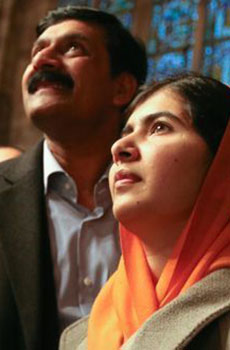 He Named Me Malala is an inspiring documentary about Malala Yousafzai, a Pakistani teenager who is the youngest person ever to receive the Nobel Peace Prize. After being shot by the Taliban for speaking out for girls' education, she recovered and went out to become an advocate for women's rights, reconciliation, and peace around the world.Her activism is an inspiration to us all.
He Named Me Malala is an inspiring documentary about Malala Yousafzai, a Pakistani teenager who is the youngest person ever to receive the Nobel Peace Prize. After being shot by the Taliban for speaking out for girls' education, she recovered and went out to become an advocate for women's rights, reconciliation, and peace around the world.Her activism is an inspiration to us all.
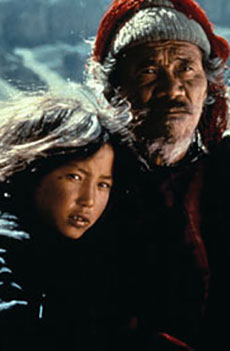 Himalaya is a Nepalese film about some mountain villagers on their annual yak caravan. At first you may think you have absolutely nothing in common with these folk, but as the story unfolds, you will recognize universal themes of family and community life.
Himalaya is a Nepalese film about some mountain villagers on their annual yak caravan. At first you may think you have absolutely nothing in common with these folk, but as the story unfolds, you will recognize universal themes of family and community life.
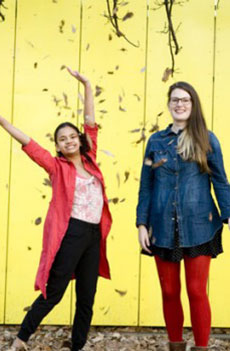 I Am Eleven is an entertaining and light-hearted documentary about the hopes, dreams, and fears of young people around the world. Director Genevieve Bailey traveled to 15 countries including Thailand, Japan, India, Morocco, Sweden, and New Jersey in the U.S.A. and did interviews with children who were 11 years old.
I Am Eleven is an entertaining and light-hearted documentary about the hopes, dreams, and fears of young people around the world. Director Genevieve Bailey traveled to 15 countries including Thailand, Japan, India, Morocco, Sweden, and New Jersey in the U.S.A. and did interviews with children who were 11 years old.
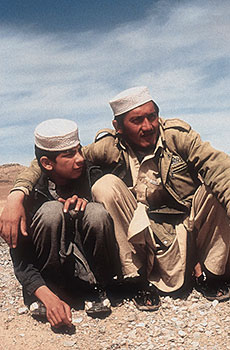 In This World is the story of two refugees from Afghanistan trying to make their way over land to England; this story will evoke your compassion and connect you to the 40 million uprooted people in the world today.
In This World is the story of two refugees from Afghanistan trying to make their way over land to England; this story will evoke your compassion and connect you to the 40 million uprooted people in the world today.
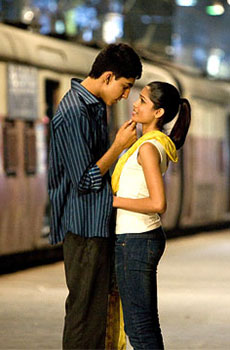 Slumdog Millionaire is one of our choices for the Best Spiritually Literate Films of 2008. It follows a Indian boy from his childhood in the slums of Mumbai to his appearance on the TV game show "Who Wants to Be a Millionaire?" Along the way, we connect with his endless curiosity, his awareness that enables him to find teachers all around him, and his devotion to the love of his life. We feel lucky to have met someone with such zest for life.
Slumdog Millionaire is one of our choices for the Best Spiritually Literate Films of 2008. It follows a Indian boy from his childhood in the slums of Mumbai to his appearance on the TV game show "Who Wants to Be a Millionaire?" Along the way, we connect with his endless curiosity, his awareness that enables him to find teachers all around him, and his devotion to the love of his life. We feel lucky to have met someone with such zest for life.
